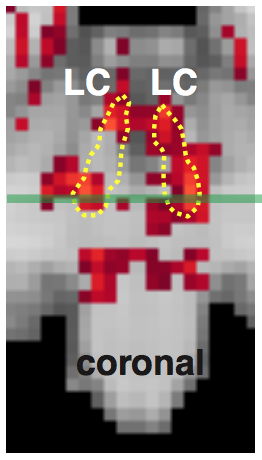“Dopaminergic medication reduces striatal sensitivity to negative outcomes in Parkinson’s disease”.
Brónagh McCoy, Sara Jahfari, Gwenda Engels, Tomas Knapen, Jan Theeuwes

Abstract Reduced levels of dopamine in Parkinson’s disease contribute to changes in learning, resulting from the loss of midbrain neurons that transmit a dopaminergic teaching signal to the striatum. Dopamine medication used by patients with Parkinson’s disease has previously been linked to behavioural changes during learning as well as to adjustments in value-based decision-making after learning. To date, however, little is known about the specific relationship between dopaminergic medication-driven differences during learning and subsequent changes in approach/avoidance tendencies in individual patients. Twenty-four Parkinson’s disease patients ON and OFF dopaminergic medication and 24 healthy controls subjects underwent functional MRI while performing a probabilistic reinforcement learning experiment. During learning, dopaminergic medication reduced an overemphasis on negative outcomes. Medication reduced negative (but not positive) outcome learning rates, while concurrent striatal blood oxygen level-dependent responses showed reduced prediction error sensitivity. Medication-induced shifts in negative learning rates were predictive of changes in approach/avoidance choice patterns after learning, and these changes were accompanied by systematic striatal blood oxygen level-dependent response alterations. These findings elucidate the role of dopamine-driven learning differences in Parkinson’s disease, and show how these changes during learning impact subsequent value-based decision-making.